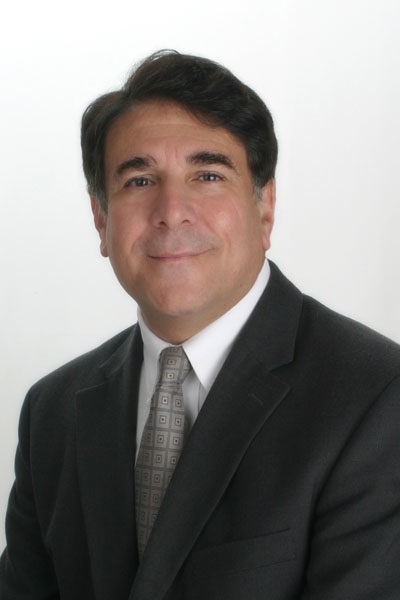The Miami Herald Wins May Sidney for Series on Routine Abuse and Neglect at Assisted-Living Facilities for the Aged and Mentally Ill
NEW YORK: The Sidney Hillman Foundation announced today that the Miami Herald reporters Michael Sallah, Rob Barry, Carol Marbin Miller and Chuck Fadely have won the May Sidney Award for “Neglected to Death,” their ongoing series that looks into the widespread neglect and abuse occurring at assisted-living facilities for the elderly and mentally ill in Florida.
After a year spent examining thousands of state inspections, police reports, court cases, autopsy files, emails, death certificates and conducting interviews with dozens of operators and residents across the state, the Miami Herald discovered a pattern of abuse in the homes and the state’s repeated failure to take action.
Florida passed a celebrated Residents Bill of Rights in 1980 with safeguards considered the most progressive in the nation, and advertised the state as the place to retire with safety and dignity. But budget cuts in the 1990s which led to cutbacks in inspections, followed by an explosion in the number of assisted living facilities combined with a powerful industry that lobbies to remove regulations, resulted in the Herald’s findings.
The story’s major findings include:
- Nearly once a month, residents die from abuse and neglect — with some caretakers even altering and forging records to conceal evidence — but law enforcement agencies almost never make arrests.
- Homes are routinely caught using illegal restraints — including powerful tranquilizers, locked closets and ropes — but the state rarely if ever punishes them.
- State regulators could have shut down 70 homes in the past two years for a host of severe violations — including neglect and abuse by caretakers — but in the end, closed just seven.
- While the number of new homes has exploded across the state — 550 in the past five years — the state has dropped critical inspections by 33 percent, allowing some of the worst facilities to stay open.
- Though the state has the power to impose fines on homes that break the law, the penalties are routinely decreased, delayed or dropped altogether.
- Records of deaths at the homes are kept secret by the state — hidden even from family members — allowing facilities to conceal the critical mistakes that took the lives of their residents.
- In three cases, family members were told relatives died of natural causes, but records show their caretakers had abused and neglected them.
Days after the series was published state lawmakers dropped several pieces of legislation that would have further deregulated the homes. Furthermore, several lawmakers said they will work on overhauling the state’s oversight of ALF’s.
Michael Sallah is a Pulitzer-Prize winning member of the Miami Herald’s investigative unit, directing investigations into public housing corruption, medical neglect and failures in government oversight of the mortgage and securities industries. He was a recipient of the 2004 Pulitzer Prize for Investigative Reporting for uncovering the longest series of atrocities in the Vietnam War and subsequent cover-up by the Pentagon. His unit has won nearly every award in American journalism, including a Loeb, Polk, National Headliner, Heywood Broun, National Press Club and Sigma Delta Chi first-place citations.
Rob Barry is an award winning journalist, with expertise in reporting, computer programming and database analysis. He joined the Miami Herald’s investigative team in 2007 and has covered finance, real estate, healthcare and politics. In addition to reporting, Barry has created several websites for the newspaper and is tasked with managing many of the newsroom’s databases. He graduated from the University of Miami in 2005.
Carol Marbin Miller is a veteran Miami Herald reporter who has won numerous statewide awards for her work covering children and family issues in Florida over the past two decades. Her work in exposing breakdowns in the state regulatory system overseeing Florida’s foster parent and adoption programs and juvenile justice has sparked grand jury probes, arrests, and legislative changes aimed at bolstering safeguards for some of the state’s most vulnerable residents.
Chuck Fadely is a visual journalist at the Miami Herald who has been a photographer, picture editor, and video producer during his career. He has contributed photos and video to numerous Pulitzer-prize winning stories, including for the paper’s coverage of Hurricane Andrew, for the coverage of the seizure of Elian Gonzalez, and for investigative work on Miami’s housing problems. He shot the photos and produced the video for the ‘Neglected to Death’ series.
The Sidney Award is given once a month to an outstanding piece of socially-conscious journalism, or a leading journalistic association, by the Sidney Hillman Foundation, which also awards the annual Hillman Prizes every spring. For more information please click here.
Backstory
MAY, 2011
Why did you decide to look into neglect and abuse at homes for the aged and mentally ill?
We received a tip from a former agent for the Florida attorney general’s office that frail elders were routinely being abused and neglected in group homes – especially assisted living facilities – but the state was doing very little to crack down on the caretakers. He basically came to us in frustration. He said people were regularly being beaten, caged, and in some cases, starved, but that the state agency in charge of licensing and monitoring homes rarely took action to stop the abuse. Since assisted living facilities surpassed nursing centers as the primary homes for the elderly and mentally ill in Florida, we wanted to see for ourselves whether state regulators were doing their jobs to protect the residents.
What surprised you as you did your research?
So many people were dying of abuse and neglect in Florida’s ALFs – nearly one a month. A 71-year-old man with schizophrenia burned to death after he was left in a bathtub of scalding water. A 74-year-old woman was strapped down so tightly to her bed, the restraints ripped into her skin and killed her. One 75-year-old man with Alzheimer’s disease was torn apart by an alligator after he wandered from the facility for the fourth time. These are homes that are supposed to protect and watch over frail residents, but were mistreating and in some cases, killing them. While Florida boasts one of the nation’s toughest elder abuse laws, few caregivers are ever charged for killing the people under their watch. Out of 70 death cases we obtained from the state’s confidential files, only two caregivers were charged in the past eight years. Neither one spent a day in prison – both getting probation from the courts. We also found the state was routinely catching homes using illegal restraints, including doping residents with powerful tranquilizers, caging them and tying them with ropes, but most of the facilities are still operating, even after they were found repeating the violations. Three decades ago, Florida passed one of the first ALF laws in the nation – including a celebrated residents bill of rights – with lawmakers promising that elderly people would always be able to live with dignity and respect in the Sunshine State. But we found the state failed at every level, from investigating shoddy operators to disciplining bad homes to shutting down the worst offenders. In the past two years, the state could have closed 70 homes for serious violations, including residents dying of abuse and neglect, but shuttered just seven.
What has the response been since you published it?
Several lawmakers have pledged to overhaul Florida’s enforcement system overseeing the 2,800 assisted living facilities in the state as well as the law created to protect the residents. Just days after the Herald series was published in May, state lawmakers dropped several pieces of legislation that would have removed regulations and protections from the homes.
Is there something you wish you had room to include in the piece but could not?
Yes, but we are in the process of reporting the story now, so we can’t give that away.
What kind of effect do you think this piece could have on oversight of these centers?
We believe Florida legislators will enact a tougher law, including increased penalties for bad caretakers and more frequent inspections of ALFs. Two leading state senators – a Republican and a Democrat – have already promised to raise the state qualifications for ALF managers. These are people in positions of great responsibility, often making life and death decisions – dispensing powerful psychotropic drugs and monitoring changes in medical conditions of their residents. Right now, a person with a high school degree and four days of training can open an ALF – far less than the state requirements for a barber, cosmetologist and auctioneer.
The Miami Herald





